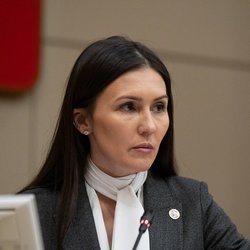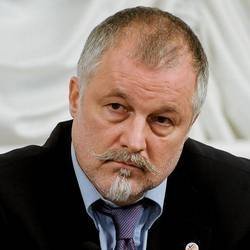'Tatarstan is the first in terms of crisis resolution quality': how Russian regions supporting businesses
The 1,3 billion rubles business support programme in Tatarstan has turned out to one of the largest such programmes announced in the regions of the Russian Federation, and it is entirely the “brainchild” of the republic. As experts note, Tatarstan in the conditions of the “coronacrisis” showed an initiative unusual for most other regions (which had been previously demanded from the regions by President Vladimir Putin) and, in addition, drew attention to the business was left out of other programmes. Realnoe Vremya's analytical service compared the declarations and real business support measures announced in the Russian regions.
1,3 billion rubles is not the final figure
Last week, the authorities of Tatarstan announced a new programme amounting to 1,3 billion rubles to reduce the negative impact of the crisis on enterprises and support them, including those that have not been included in the list of the most affected industries — which, according to the authorities, are 48% of the total.
The set of support measures includes, in particular:
- providing preferential microloans (from 100,000 rubles) for up to 2 years at 1% per annum for the first 6 months. The estimated budget of the programme is 700 million rubles (from the funds of the Republic of Tatarstan — 500 million rubles and 200 million rubles — the Business Support Fund). It is planned to support about 400 enterprises in the real sector. Depending on the economic situation, the possibility of further application of a reduced interest rate is provided. These funds will help businesses solve issues with purchasing raw materials, paying for services, purchasing equipment and paying wages;
- subsidizing the interest rate on loans (no more than the key rate of the Central Bank of the Russian Federation (5,5% as of April 25, 2020), but no more than 1,5 million rubles a year for 6 months. The approximate budget of this programme is 100 million rubles);
- guarantee of the Guarantee Fund of the republic for replenishment of working capital and investment purposes. The commission fee for these measures has been completely reset to zero for the first six months (0%). The planned budget is 274,8 million rubles (115,8 million rubles of regional funds; 159 million rubles at the expense of federal funds);
- At the same time, the Guarantee Fund of the republic is providing support to enterprises through debt restructuring. The planned budget of the programme is about 180,6 million rubles, (100 million rubles from the regional budget and 80,6 million rubles from the federal budget);
- as part of the support for enterprises engaged in the provision of food and beverages, a new programme has been developed to subsidize the cost of delivery to small and medium-sized businesses. The estimated budget of the programme is 28 million rubles from the regional budget, the duration of the programme is 2 months. It is planned to support about 400 enterprises in the real sector. In the case of continuing difficult economic conditions, the programme will be extended.
The source of funds to help businesses will be the budget of Tatarstan, head of the press service of the president of the republic Lilia Galimova explained to Realnoe Vremya. Thus, even in the conditions of the pandemic, Tatarstan found funds (considerable!) to support affected businesses — especially those that can't rely on other sources of assistance.

How other regions are supporting businesses
The Kazan Kremlin decided not to compare the new business support programme with practices in other regions. However, as the analytical service of Realnoe Vremya found out, this programme is already definitely in the top ten in terms of business support.
Thus, the financing of the measures to support the economy in Bashkiria is estimated at as much as 30 billion rubles. They include an exemption from paying rent on state and municipal property (in addition, owners who reduce the rental rate by 50% will receive tax benefits). Besides, the region is reducing the rates under the simplified system of taxation with the “income” object of taxation up to 1% and with the “income less expenses” object of taxation up to 5% for 2020. Also, the exemption from paying property tax and land tax for 2020 was announced. Besides, the regional authorities are allocating compensation for the exchange rate difference in the cost of equipment to the companies implementing priority investment projects.
Also, a large amount of support is currently allocated in Primorsky Krai: measures to support business there are estimated at 4 billion rubles. These measures include preferential lending in the Primorsky micro-credit company at 1,5% per annum — you can get up to 5 million for 3 years. At the same time, you can get a deferred payment for six months — paying only interest. Besides, the rates for certain taxes have been reduced: for payments under the simplified system of taxation, the rate for income is reduced from 6% to 3%, for transport tax the rate has been reduced from 37,5 to 10 rubles for each horsepower of passenger buses. The hotels that have lost revenue will be exempt from property tax, and for shopping centres the rate for this tax will be reduced to 1%.
Business support measures in Irkutsk Oblast are estimated at 3,1 billion rubles. They will also include exemption from lease payments for property in regional ownership until September 30, 2020, and, in addition, deferred payments for UTII (single tax on imputed income) and simplified system of taxation. For owners of shopping centres, the property tax rate has been reduced from 0,75% to 0,5%.
Stavropol Krai actually cancelled the rent for state property — until the end of 2020 it will be 1 ruble per square metre. The local Guarantee Support Fund has set a preferential rate of 0,5%, while the Microfinance Fund is issuing funds for salaries and working capital at a preferential rate of 1%. Under the simplified taxation system, the rate has been reduced from 6% to 1% for income, and the “income minus expenses” rate has been reduced from 15% to 5%. The corporate property tax rate has also been reduced from 2,2% to 1,1%, regardless of the form of ownership. The volume of these support measures is estimated at 1,5 billion rubles.
The support measures in Voronezh Oblast are estimated at the same amount. Payments on the lease of state property have been deferred for 6 months, the local Business Development Fund are granting deferred payments on the principal amount of loan, restructuring of the interest rate on loans at the level of the Central Bank's key rate. Passenger transport companies have been exempt from transport tax.
In general, the most popular support measures in the regions are concessional loans and rent relief for state property — such measures have been introduced in more than 50 different regions in one form or another. Concessional loans are issued at a rate of several percent through regional funds or business support centres — in Magadan Oblast, such has recently been created in connection with the coronacrisis.
Many regions are also experimenting with taxes under the simplified system of taxation — the rates on them have also been reduced by about 50 subjects of the Russian Federation. As a rule, rates have been reduced by half, or even up to 1% for all or for the most affected businesses. In Adygea, this tax has been completely “reseted to zero”, but only for entrepreneurs registered this year engaged in industrial, social, scientific activities, as well as in the sphere of household services to the population.
Many regions have announced multiple reductions or cancellations of property taxes — primarily for shopping centres or hotels.
“I believe that Tatarstan is now the first in terms of the quality of crisis resolution”
Political expert Marat Bashirov notes that Tatarstan has always stood out positively among other regions — including in the issue of business support.

Aleksey Kurtov, the president of the Russian Association of Political Consultants, agrees with him, noting that Tatarstan has previously been different in terms of helping the affected population:

Well, Tatarstan is applying targeted and non-targeted support for people who can remain with minimal means of livelihood, and this is, in principle, great. I think that Tatarstan is now the first in terms of the quality of crisis resolution," Kurtov concluded.
Boris Kagarlitsky, the director of the Institute of Globalization and Social Movements, notes that the loss of entrepreneurs is now impossible to measure in full and gives rather grim prospects:

The governments of Western Europe, the United States, and Asia that are acting more generously distribute money to the population, but no one in Russia wants to do this categorically. Russia's behavior indicates that the ruling elite is not interested in supporting demand in the domestic market and does not care what the population will eat. However, if we take the example of more democratic countries, we will find that in the short term, the problem can be mitigated, if not solved, by distributing money to the population and small and medium-sized businesses.
But in the long term, the issue will not be resolved without significant social changes, including a sharp increase in investments from the public sector. And investments that create rational jobs. We need not only massive state participation in the economy but also rational, meaningful and consistent participation in strategic development priorities. And this requires radical reforms in the state itself. I think that the Russian state is logical in something. In Germany and the UK, they are taking the first steps to solve the problems of distributing money to the population, then they will face new problems, and the current ruling elites will not necessarily be able to solve them.
What matters is not the amount but how to use it
Well-known economist and blogger Albert Bikbov notes that it is Tatarstan that drew attention to those entrepreneurs who “fell out” of the federal support programmes.

For such enterprises and entrepreneurs, the government of the Republic of Tatarstan, on behalf of the President of the Republic, has developed a whole set of programmes with a funding volume of 1 billion 300 million rubles.
Shamil Ageev, the chairman of the Chamber of Commerce and Industry of Tatarstan, believes that what is important is not the amount of support but where it will be directed:

It is important for us to support production now. We have about 146,000 small and medium-sized businesses, for example, this is KIP Master, which works for KAMAZ, Khimgrad. We will support them. Targeted assistance will give greater returns and save jobs that cannot be lost. I understand that the trading sector is suffering, but it will recover when people have money. And they will only be in production, there are more taxes.
We believe that we should return to tax holidays, to interaction with landlords and to deferrals for the use of energy resources. You can't evaluate everything in a populist way.
We know that businesses are supported in Bashkiria, Nizhny Novgorod, and Samara. It must be weighed in the aggregate. You can be in the forefront, for example, Bashkiria has allocated 15 billion rubles (later the regional authorities announced an increase of this amount by half — editor's note), but we only 1,3 billion rubles. But 1,3 billion rubles may be more useful than 15 billion rubles, which will just eaten away.
Commissioner for Entrepreneurs' Rights Farid Abdulganiev said that hundreds of entrepreneurs are asking for support every day.
